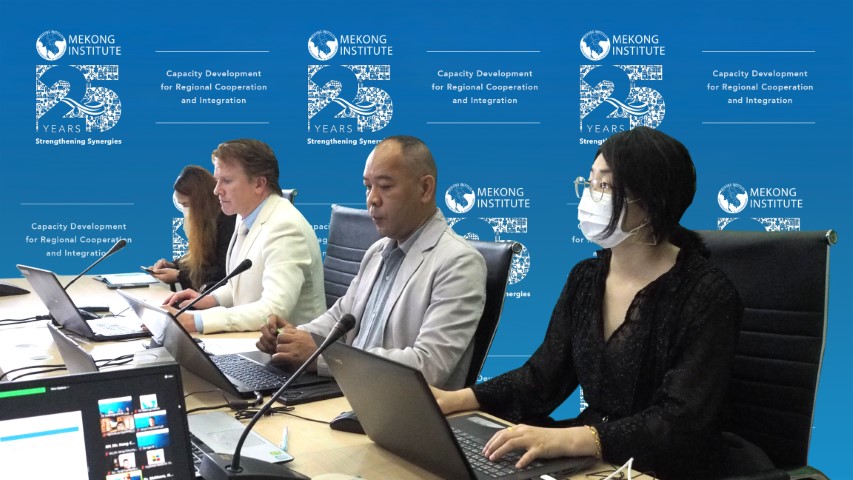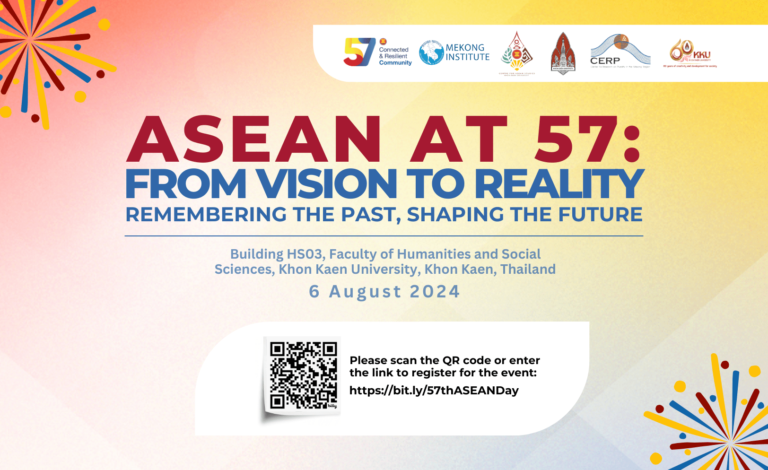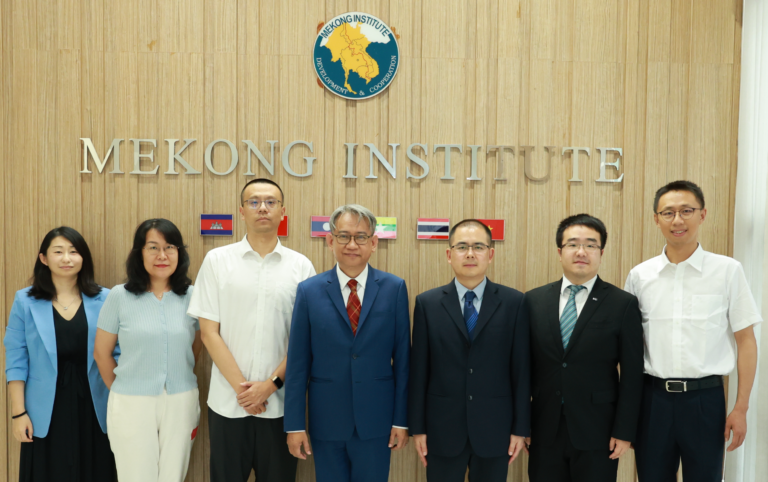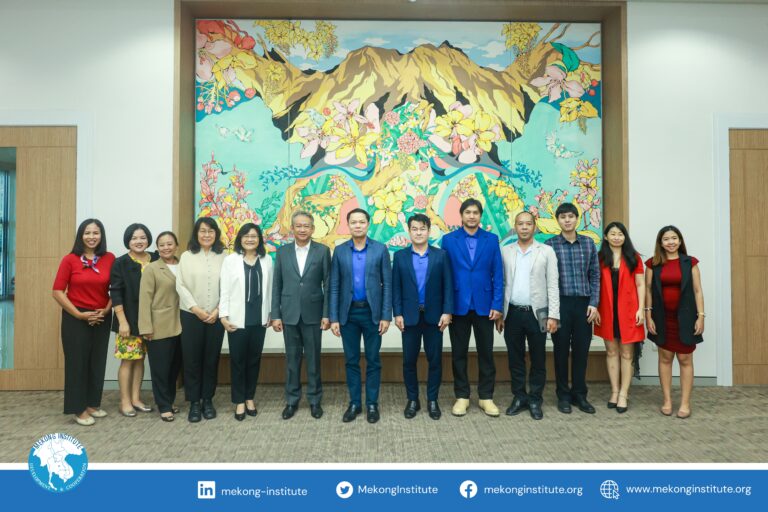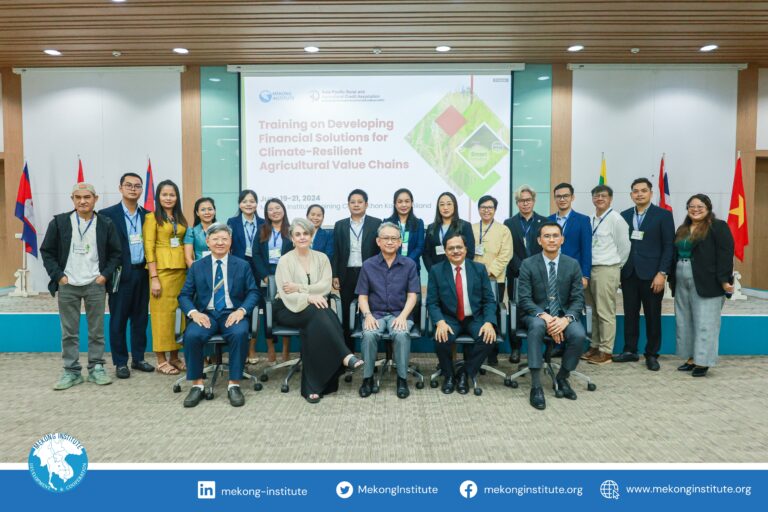With support from the Mekong – Republic of Korea Cooperation Fund (MKCF), the Mekong Institute (MI) conducted an online workshop to validate the findings of two studies on “Smart Logistics and Renewable Energy Technology: Application Readiness for Agricultural Supply Chains Development in Cambodia, Lao PDR, Myanmar, Thailand, and Vietnam” on September 6, 2022.
The studies were carried out in consultation with the public and private sectors in the Mekong countries between March and September, 2022 as part of a project devoted to ‘Sustainable and Smart Agricultural Supply Chain Development in Mekong Countries’.
The workshop was chaired by Dr. Julian Latimer Clarke, Program Specialist, Trade and Investment Facilitation Department (TIF) and attended by the project implementing team members from Sustainable Energy and Environment (SEE) and TIF of MI, the project stakeholders as well as the key advisers to the studies in the Mekong countries. Senior officials from the Ministries of Agriculture, Land and Transport, and Energy from Cambodia, Lao PDR, Myanmar, Thailand and Vietnam (CLMTV) participated actively is the discussions. Business associations and service providers in the area of agribusiness, logistics and energy from across the CLMTV were also in attendance.
The agricultural supply chains in the Mekong region display low levels of sophistication. Automation is rare, there are high levels of informality, and the agricultural sector generally lacks scale. The export process is cumbersome and inefficient. The most crucial parts of the value chain for the purposes of this study are the STORAGE of goods and the MOVEMENT of goods.
Addressing participants in the opening session, Dr. Julian said:
To propose an intervention, the study team identified suitable technologies that can be adopted by stakeholders in an agricultural value chain that stretches across the Mekong with the recommendation that stakeholders in the chain embrace new technologies at low cost to improve the sustainability of their resources. These solutions are readily accessible to actors down the value chain where they have access to finance and sufficient economies of scale to adopt more sophisticated technologies.
The study findings resulted in two extensive reports prepared by the consultants – Dr. Janya Chanchaichujit and Dr. Sreejith Balasubramanian. Feedback from the workshop participants came in the form of detailed analysis and suggestions about the state of the logistics industry, as seen through the lens of sustainable technology and renewable energy.
The presentation included an in-depth assessment of the operationalization, specification, cost and benefit, and return on investment of the proposed technologies. The consultation workshop sought, and received, suggestions and recommendations from the stakeholders to formulate capacity building activities, identify pilot activities, and select appropriate agriculture products for further initiatives in this area. The final study report will be circulated to the project stakeholders when finalized.
Government ministries in the CLMTV countries will nominate attendees for a training course based on the studies. The Ministries have volunteered to nominate participants to join these future training activities as a supplement to the report.
About Mekong-Republic of Korea Cooperation Fund (MKCF)
Established in 2013, the MKCF provides funding support to the five Mekong countries (Cambodia, Lao PDR, Myanmar, Viet Nam and Thailand). The objective is to foster regional cooperation and build human resource capacities in the seven priority areas, which are Culture and Tourism, Human Resources Development, Agriculture and Rural Development, Infrastructure, Information and Communication Technology, Environment and Non-Traditional Security Challenges.
Since its establishment, the fund has helped to strengthen capacities in information communication technology for market expansion, design greener growth models for economic and environmental advancement, improve water resource management, facilitate a regional agriculture value chain and deepen regional cooperation through education, skills development, trade and business.
MKCF is financed by the Republic of Korea while Mekong Institute (MI) acts as the coordinator of the MKCF. For more information, visit: https://www.mekonginstitute.org/what-we-do/development-fund/mekong-republic-of-korea-cooperation-fund


